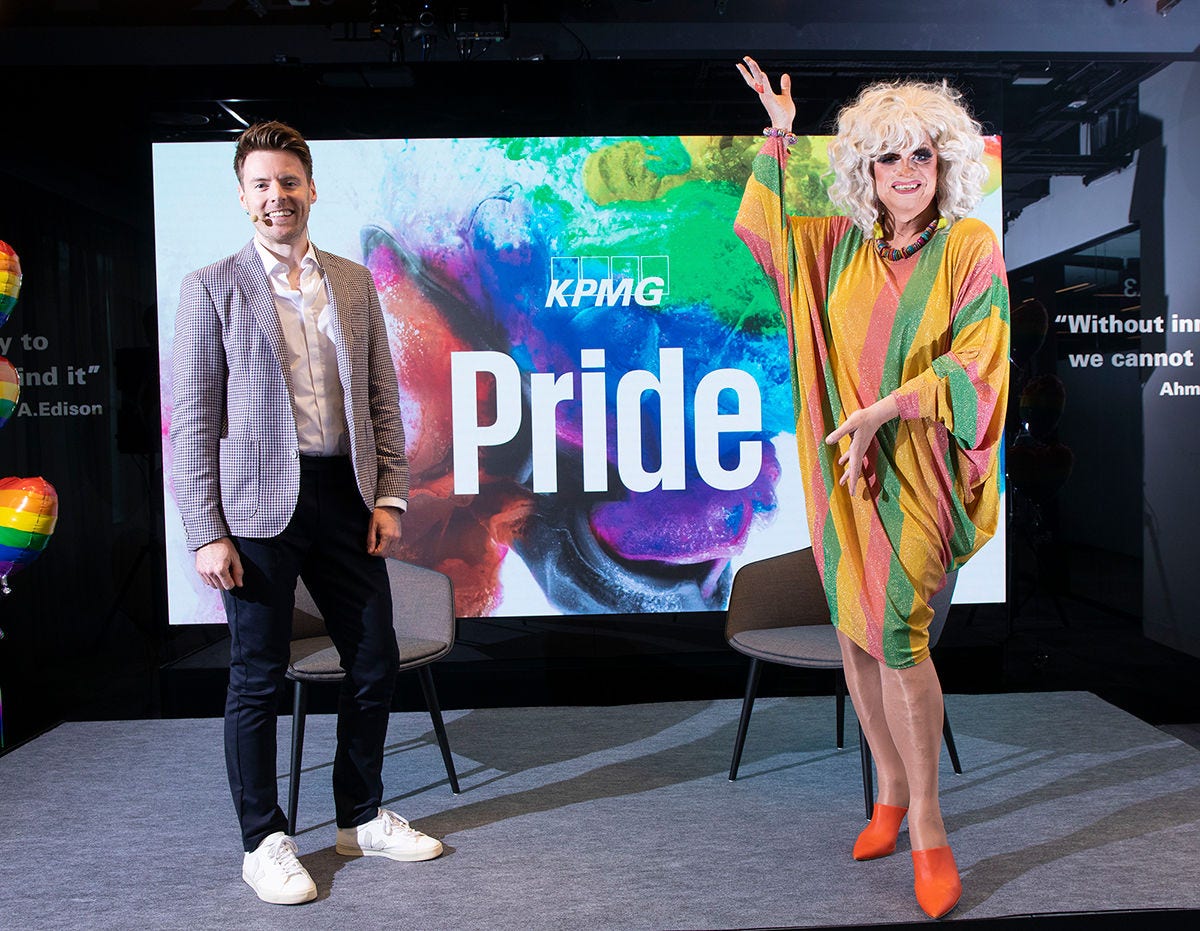Supporting people in communities & the workplace
A survey by research firm, Out Now, showed that 78% of Irish LGBT+ people have hidden their sexual orientation or identity at work. The study took place across 15 countries, with Ireland showing one of the highest numbers of employees not feeling comfortable coming out in work. When speaking about their first job, 69% of LGBT+ people in Ireland said they have experienced negative comments about the LGBT+ community and it made them feel uncomfortable being open.
Following the creation of an internal LGBT+ steering committee, we focused on supporting LGBT+ people in our communities and workplace. The focus was to create a visible ally campaign in KPMG; develop a workshop to educate and engage people on the LGBT+ agenda; ensure we are seen as an open and inclusive for all staff; supporting an LGBT+ charity through engaging them with skills-based volunteering; and having visible support and engagement in Pride events throughout Ireland.
Champion and Chair of our LGBT+ committee, KPMG Partner Eamon Dillon, says “We really want KPMG to be a firm where all of our people feel welcome, supported and can be themselves.”
We officially launched our LGBT+ network with Executive Speaker Series for our people celebrating two accomplished people who spoke at the event – Margot Slattery, Country President of Sodexo Ireland and Gavan Hennigan, an extreme endurance athlete.
At the end of the day, it’s about treating all people with dignity and respect in the workplace, says Karina Howley. “I do think that we have made great advances in business. Every kind of organisation now appreciates the benefits of diversity in its broadest sense, whether age, gender, diversity of thought — they know everybody brings something to the table".
To build a diverse and inclusive organisation you need to hold diversity and inclusion lens over all your activities, including your external communications. That means everything from the language and imagery used in your recruitment advertising to the panellists in your seminars, she says. In her experience, no one group wants to be singled out for special treatment: “All people want is to feel they are on a level playing field, that the same things are expected of everyone, and their success will be solely down to their contribution to the team.”




